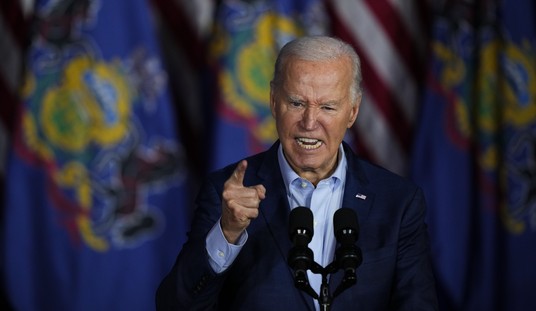**SEE UPDATES BELOW**
The fate of a payroll tax cut extension backed by the White House and overwhelmingly passed by the Senate is uncertain after a restive House Republican conference expressed displeasure with the two-month deal. Faced with the uprising on his right flank, House Speaker John A. Boehner (R-Ohio) retreated Sunday from his previous support for the package, saying the House does not expect to approve that plan on Monday night after it returns to Washington.
“Well, it’s pretty clear that I and our members oppose the Senate bill,” Boehner said in an appearance on NBC’s Meet the Press. “It’s only for two months. You know, the president said we shouldn’t go on vacation until we get our work done. And frankly, House Republicans agree.” The move sets up the latest game of brinkmanship on Capitol Hill, in which a failure by lawmakers to pass a deal before New Year’s Day will result in a two percentage-point payroll tax increase on 160 million workers, the termination of unemployment benefits for some jobless Americans and a reduction in reimbursement rates for doctors who treat Medicare patients. Far-reaching repercussions for both political parties also loom. House Republicans oppose the short-term nature of the deal, arguing that it would be bad tax policy to provide just a two-month extension as well as bad politics to keep the issue alive for President Obama.
Speaker Boehner outlined his caucus' objections to the Senate's compromise legislation at a press conference this morning:
Remember, the House passed its own version of the payroll tax cut extension last week. That bill renewed the temporary cuts for a full year, which also happens to be the White House's desired outcome. The upper chamber's alternative expires after two months. Acrimony is building in Washington, as Senate Democrats -- and a handful of Republicans -- are blasting the House for scuttling the bipartisan deal as recess beckons. The White House is also firing salvos at Boehner & Co, although their credibility in this saga is questionable. The administration is excoriating House Republicans for refusing to swallow a bill that they themselves had previously threatened to veto, even though Boehner's crew is fighting to restore President Obama's preferred timeline. The Beltway is a strange, strange place, my friends.
On Friday night, I opined that the Senate deal was a clear victory for Republicans because it included the expedited Keystone language and didn't raise taxes on some people to extend a fleeting cut for others. Some may view the House GOP's recalcitrance as an instance of snatching defeat from the jaws of victory. There may be some truth to that critique, politically, but it's hard to argue with the Republican majority's two-pronged policy argument: (1) They've already passed a bill that satisfies the president's supposedly overwhelming policy goal -- namely, a one-year extension of the bandaid break. (2) Certainty is crucial in business, and offering piecemeal, pint-sized extensions every few months is economic madness. On that second point, expect to hear this brand new report quoted a lot as the payroll battle moves forward:
Recommended
Officials from the policy-neutral National Payroll Reporting Consortium, Inc. have expressed concern to members of Congress that the two-month payroll tax holiday passed by the Senate and supported by President Obama cannot be implemented properly. Pete Isberg, president of the NPRC today wrote to the key leaders of the relevant committees of the House and Senate, telling them that “insufficient lead time” to implement the complicated change mandated by the legislation means the two-month payroll tax holiday “could create substantial problems, confusion and costs affecting a significant percentage of U.S. employers and employees.” The NPRC is a non-profit trade association that does not take positions on policy. The group represents organizations that provide payroll processing and services to more than 1.5 million employers, impacting one third of the private sector.
“We’re neutral and we’d be happy to do the work,” Isberg told ABC News. “The concern is really for those who don’t use a payroll service provider,” he said. Americans will have different outcomes, he said, causing confusion “because they’ll have different outcomes. Some will have it done on time, some won’t, some will have adjustment notices later in the year.” The two-month payroll tax holiday, which the president has said should be extended throughout 2012, will mean that wages would face a Social Security tax of 4.2 percent during January and February, but it would increase to 6.2 percent in March.
The White House and Senate leadership keep grumbling that there's "no reason" for the House to block the temporary plan before Christmas recess, even if they want to negotiate a lengthier extension down the line. The ABC News story quoted above seems like a pretty darn good reason to me. The Senate compromise may have been a solid political victory for conservatives, but policy still matters. If a convenient (or even attractive) compromise is infeasible on a basic logistical level, why bother? The House will hold three votes tonight: (1) Up-or-down on the Senate bill, which is expected to fail. (2) To refer the disparate bills to a conference committee to hash out differences. (3) To reaffirm the contents of the House-passed version.
Despite what some Senators might tell you, this does not represent the end of civilization as we know it. To the contrary, it simply requires Congress to...do its job. A School House Rock-style refresher: The House passes a bill. The Senate passes its own varaint. A conference committee convenes to iron out discrepancies and craft compromise language. The resulting version then returns to both chambers for a new vote. If it passes, the president can sign it into law, or issue a veto. If not, the conference committee reconvenes and tries again. Conference committees are often bypassed, but they exist to serve this very purpose. Granted, this can be hard work, but it's what our representatives are elected and paid to do. And it's not as if Senate Democrats are above working on Christmas to address legislative priorities. (Ahem). Instead, we're being treated to lectures on patriotism from certain Republicans and more class warfare demagoguery and stupid ultimatums from Democrats. No wonder Congress' approval stands at a glittering 12 percent.
UPDATE - No, seriously, are any pro-deal Senators concerned about this? From either party? Anyone? Bueller?
Payroll processors are watching Congress with frustration as a Dec. 31 deadline for extending a payroll tax cut nears, and are warning companies about the difficulty of implementing a temporary provision passed by the Senate. Payroll companies can react quickly to a yearlong extension for the first paycheck of 2012 or adjust the second paycheck to correct problems, said Pete Isberg, president of the National Payroll Reporting Consortium, an industry group. Payroll providers still don’t like a second consecutive year of December tax law changes or the Senate-backed two-month extension of the tax cut that could create unprecedented complications.
UPDATE II - No votes tonight. The Rules Committee will do their thing, though, setting three major votes described above, plus the Democrats' motion. Democrat leaders are ripping the "tea party" extremists for torpedoing this deal. They're claiming that Republicans care more about blocking tax increases on the wealthy, but don't care about hikes on the middle class. Steny Hoyer just said the 60-day Senate extension would provide "certainty." This is all wrong. The "tea party" Republican House of Representatives already passed an extension of the temporary payroll tax cut. For a full year -- which is what this president said he wanted. Also, setting aside the obvious observation that a year of policy provides much more certainty that two months, have Pelosi, Hoyer, and company not read either of the pieces linked above? Non-partisan experts say the Senate bill cannot be implemented. They say it would unleash chaos on American businesses. Do these facts not matter? Have we come to a point in Washington where members of both parties are blinding championing a bill that demonstrably will not work? How depressing.
UPDATE III - Oh goodie. Nancy Pelosi is brashly refusing to even consider appointing conferees for a conference committee. In other words, Democrats are so committed to a bill that independent analysts insist "cannot be implemented properly" that they're openly pledging not to participate in the process of fashioning a feasible alternative. What a joke.
UPDATE IV - Republicans are now indicating they won't hold a direct, up-or-down vote on the Senate bill, which may indicate that they're worried they don't have the numbers to defeat it. Another possibility is that the GOP is worried about the politics of holding a vote against extending the cuts, even in pursuit of a better deal. Whether it's an optics or a whip count issue, I view this calculation as a mistake. Speaker Boehner asked the Senate to negotiate a bill of their own. The Senate acted and overwhelmingly passed the resulting compromise. Although the Senate legislation is fatally flawed, at least it's an actual Senate proposal -- an elusive beast at times (think: budget). The House should bring the Senate bill up for a vote and defeat it. If they can't, and the House passes a bill it knows will fail, then shame on them. If they can block it, though, immediately demand Democrats go to conference. Unless and until that vote is held, Democrats are going to dig in their heels. Yeah, it's unfair. The Senate regularly refuses to vote on House bills. But in this case, Boehner asked for Senate action and got it. Side-stepping a direct vote looks a bit weasily. House Republicans should continue to hammer the points that their bill fulfills the president's demand for a one-year extension (he called any other outcome "unacceptable"), and remind Democrats of their recent chest-thumping and vows to work through December 31st to get this job done.
























Join the conversation as a VIP Member